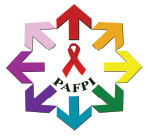Referral
PAFPIcares referrals for HIV services are a critical aspect of comprehensive HIV/AIDS care and support systems. Referrals ensure that individuals living with HIV (PLHIV) have access to a range of services beyond what a single organization may offer, thus addressing their diverse needs and promoting holistic care. Here’s how PAFPI referrals for HIV services typically work together with in house license Social Service
- Assessment and Identification: PAFPIcares providing HIV services conduct assessments to identify the specific needs of PLHIV. This may involve screenings, interviews, and discussions to understand the individual’s medical, social, and psychological needs.
- Service Planning: Based on the assessment, organizations develop individualized service plans outlining the required services and support for PLHIV. This may include medical care, counseling, testing, treatment, support groups, and other services based on the individual’s needs and preferences.
- Referral Network: PAFPIcares maintain a network of partner agencies, healthcare providers, and community resources that offer complementary HIV services. This network may include hospitals, clinics, community health centers, mental health providers, substance abuse treatment programs, legal services, housing assistance programs, and other relevant organizations.
- Referral Process: When additional services beyond the organization’s scope are needed, staff members provide referrals to appropriate service providers within the network. This involves providing the individual with information about available services, contact details of referral agencies, and any necessary support in scheduling appointments or accessing resources.
- Coordination and Follow-up: PAFPIcares ensure coordination and communication with referral agencies to facilitate seamless transitions and continuity of care for PLHIV. This may involve sharing relevant medical records, treatment plans, and other pertinent information to ensure that the individual’s needs are addressed effectively.
- Case Management: In some cases, organizations may offer case management services to oversee the referral process and coordinate the delivery of multiple services for PLHIV. Case managers work closely with clients to navigate the healthcare system, address barriers to care, monitor progress, and advocate for their needs.
- Quality Assurance: Organizations monitor the quality of referrals and services provided by partner agencies to ensure that PLHIV receive timely, appropriate, and culturally competent care. This may involve collecting feedback from clients, conducting satisfaction surveys, and evaluating outcomes to identify areas for improvement.
- Training and Capacity Building: Organizations provide training and capacity building opportunities for staff members involved in the referral process to enhance their knowledge of available services, referral protocols, cultural competence, and communication skills.
- Data Management: PAFPIcares maintain records of referrals and service utilization to track the effectiveness of the referral system, monitor trends, and evaluate the impact of interventions. Data management systems help ensure confidentiality, accuracy, and compliance with regulatory requirements.
- Community Engagement: Organizations engage with PLHIV and community stakeholders to raise awareness about available services, reduce stigma and discrimination, and promote uptake of HIV services. Community input and feedback are valuable for improving the accessibility and responsiveness of the referral system.
By establishing a robust system of our organizational referrals for HIV services, PAFPIcares can enhance access to comprehensive care and support for PLHIV, improve health outcomes, and contribute to the overall well-being of affected individuals and communities.
